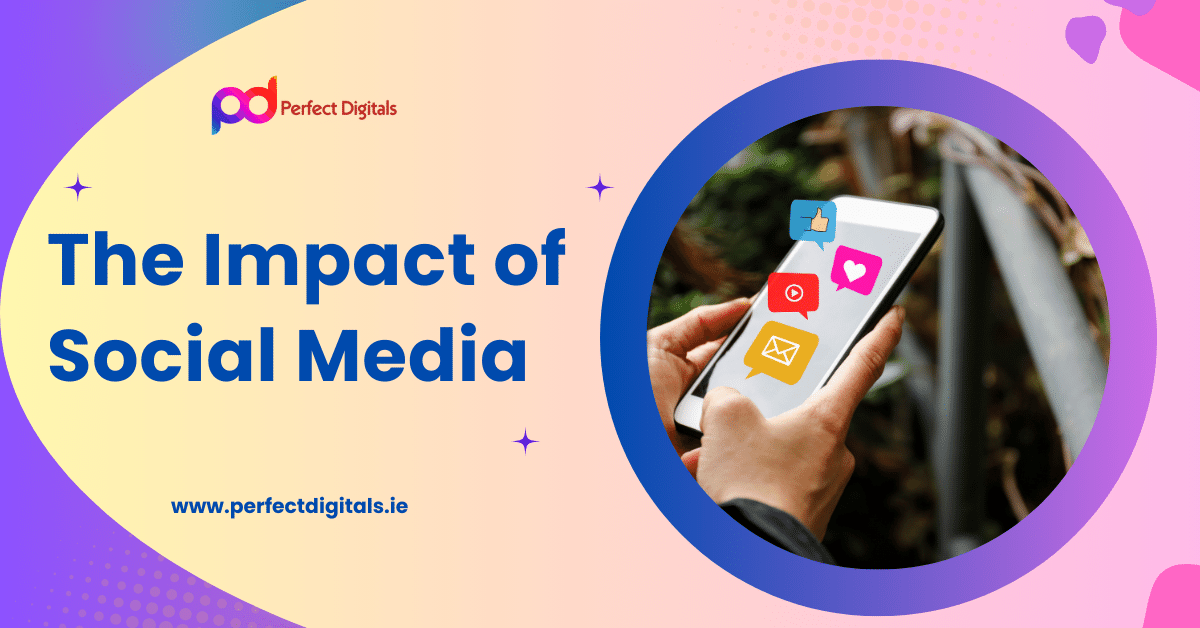
In today’s digital age, social media has emerged as a powerful tool that has revolutionized the way businesses interact with their target audience. It has opened up new avenues for businesses to promote their products and services, connect with customers, and drive sales. We will explore the various ways in which social media has transformed digital marketing and how businesses can leverage the power of online platforms to achieve their marketing goals.
The Evolution of Social Media Platforms
Social Media platforms have come a long way since their inception. Initially, these platforms were primarily used for personal connections and sharing updates with friends and family. However, they have now evolved into powerful business tools that enable companies to reach a wider audience and foster meaningful engagements.
Harnessing the Power of Social Media Advertising
Social Media platforms provide businesses with the opportunity to reach a vast audience through targeted advertising. Unlike traditional marketing methods, Social Media advertising allows companies to tailor their campaigns to specific demographics, interests, and behaviors, maximizing the impact of their marketing efforts.
Building Brand Awareness and Engagement
Digital marketing, when combined with social media, becomes a powerful tool for building brand awareness and fostering customer engagement. Social media platforms have millions of active users who spend a significant amount of time scrolling through their feeds. By creating compelling content and utilizing social media ads, businesses can promote their products or services and increase brand visibility.
Leveraging User-Generated Content
User-generated content (UGC) plays a crucial role in influencing purchasing decisions. When customers share their experiences, reviews, or testimonials on social media, it adds credibility and authenticity to a brand. By encouraging customers to create and share content related to their products or services, businesses can tap into the power of UGC and enhance their brand reputation.
The Benefits of Social Media in Digital Marketing
Expanded Reach and Targeted Advertising
One of the key benefits of leveraging social media in digital marketing is the ability to reach a wider and more targeted audience. Unlike traditional marketing methods, social media platforms have a global reach, allowing businesses to connect with potential customers from all corners of the world. Moreover, social media advertising provides advanced targeting options, enabling businesses to focus their efforts on specific demographics, interests, and behaviors.
Enhanced Customer Engagement and Interaction
Social media platforms offer businesses the opportunity to engage with their customers on a more personal level. Through comments, direct messages, and interactive features, businesses can build relationships with their audience, address customer queries, and provide real-time support. This level of engagement fosters customer loyalty and can lead to increased sales and customer satisfaction.
Cost-Effective Marketing Strategies
Digital marketing, with social media at its core, can be a cost-effective alternative to traditional marketing methods. Social media platforms offer various advertising options, allowing businesses to allocate their budgets more efficiently. With targeted advertising and precise campaign tracking, businesses can maximize their return on investment and achieve better results with smaller budgets.
Leveraging Social Media Platforms for Digital Marketing Success
Facebook: Connecting with a Global Audience
Facebook is the largest social media platform, with billions of active users worldwide. Businesses can utilize Facebook’s advertising features to target specific demographics, interests, and behaviors.
Instagram: Showcasing Visual Content
Instagram is a visual-centric platform that allows businesses to showcase their products or services through captivating images and videos. With features like Instagram Stories and IGTV, businesses can create engaging content that resonates with their target audience.
Twitter: Real-Time Updates and Customer Engagement
Twitter is a platform known for its real-time updates and rapid-fire communication. Businesses can leverage Twitter to share timely updates, engage with customers, and address customer service inquiries. Hashtag campaigns and Twitter chats can further amplify brand visibility and create buzz around products or services.
LinkedIn: Professional Networking and B2B Marketing
LinkedIn is the go-to platform for professional networking and B2B marketing. Businesses can showcase their expertise through thought leadership articles, engage with industry professionals through groups and discussions, and generate leads through targeted advertising. LinkedIn’s advertising options allow businesses to target specific job titles, industries, and professional interests.
Measuring the Impact of Social Media in Digital Marketing
Key Performance Indicators (KPIs) for Social Media Marketing
To measure the impact of social media on digital marketing, businesses need to identify and track key performance indicators (KPIs). Some common KPIs for social media marketing include reach, engagement, click-through rates, conversion rates, and return on investment (ROI). By analyzing these metrics, businesses can assess the effectiveness of their social media marketing efforts and make data-driven decisions.
Social Media Analytics Tools
There are various social media analytics tools available that can help businesses track and analyze their social media performance. These tools provide valuable insights into audience demographics, engagement metrics, content performance, and competitor analysis. By leveraging these tools, businesses can optimize their social media strategies and drive better results.
Best Practices for Social Media and Digital Marketing Integration
Develop a Comprehensive Social Media Strategy
To effectively integrate social media into digital marketing, businesses need to develop a comprehensive social media strategy. This strategy should align with overall business goals, identify target audiences, outline content themes and messaging, and establish a consistent brand voice. Regularly reviewing and optimizing the strategy based on data and feedback is essential for long-term success.
Create Compelling and Shareable Content
Content is at the heart of successful social media and digital marketing integration. Businesses should focus on creating compelling and shareable content that resonates with their audience. This can include informative blog posts, engaging videos, visually appealing images, and interactive quizzes or polls. By consistently delivering valuable content, businesses can attract and retain a loyal following.
Engage and Interact with Your Audience
Engagement is a critical aspect of social media and digital marketing. Businesses should actively engage with their audience by responding to comments, messages, and reviews. This interaction builds trust and fosters a sense of community around the brand. Encouraging user-generated content and running social media contests or giveaways can further enhance engagement levels.
Monitor and Respond to Social Media Trends
Social media trends are constantly evolving, and businesses need to stay up-to-date to remain relevant. Monitoring industry trends, competitor activity, and customer preferences is crucial for adapting social media and digital marketing strategies accordingly. By being proactive in monitoring trends, businesses can capitalize on new opportunities and stay ahead of the competition.
The Future of Social Media and Digital Marketing
Emerging Trends and Technologies
The future of social media and digital marketing is shaped by emerging trends and technologies. Artificial intelligence, virtual reality, augmented reality, and chatbots are just a few examples of technologies that are revolutionizing the way businesses interact with their audience. The rise of video content, influencer marketing, and personalized messaging are also expected to play significant roles in the future of social media and digital marketing.
Evolving Consumer Behavior and Expectations
As consumer behavior and expectations continue to evolve, businesses need to adapt their social media and digital marketing strategies accordingly. Personalization, authenticity, and seamless customer experiences are becoming increasingly important. By understanding and catering to these evolving demands, businesses can stay ahead of the curve and maintain a competitive edge.
Conclusion
In conclusion, the impact of social media on digital marketing cannot be ignored. It has transformed the way businesses connect with their target audience, build brand awareness, and drive sales. By leveraging the power of social media platforms such as Facebook, Instagram, Twitter, and LinkedIn, businesses can expand their reach, enhance customer engagement, and achieve their marketing goals. As technology and consumer behavior continue to evolve, businesses must stay adaptable and embrace emerging trends to thrive in the ever-changing landscape of social media and digital marketing.

Comments are closed